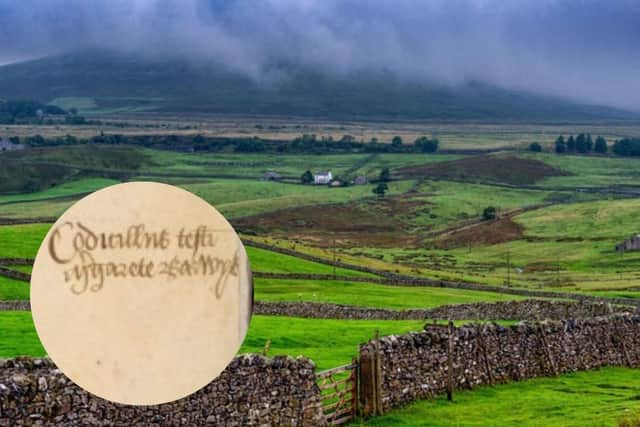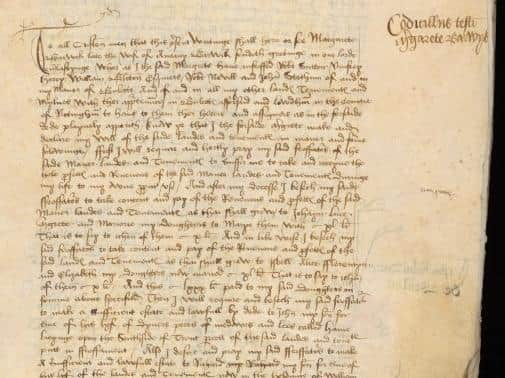Thousands of medieval Yorkshire slang words almost lost to history unearthed in new volume of historic dictionary released on Yorkshire Day
While everyone may be familiar with slang phrases such as "ey up", "'ow do" and "chuffed", pages of words not used in the region for centuries have remained lost in historical archives – until now.
Academics at the University of York's Borthwick Institute this Yorkshire Day have released a new volume of the the Yorkshire Historical Dictionary, which revives hundreds of words and idioms used in the region as far back as 1100 AD.
Advertisement
Hide AdAdvertisement
Hide AdThe new volume published more than 4,000 terms, dating from between 1100 and 1750, thanks to the life's work of local historian, Dr George Redmonds who died in 2018.


Bradford-born Dr Redmonds' sixty-year career was spent researching Yorkshire's historical documents, collecting and defining words used in the region along the way.
While some words had never previously been heard, his work also shed light on already-existing words found earlier than their first recorded use.
A reference to the word 'cricket' was found in a document from 1559 to reference a footstool.
Advertisement
Hide AdAdvertisement
Hide AdMeanwhile the word 'pudding' was originally used in 1556 to mean entrails such as a 'black pudding' – although has evolved over the centuries to mean something much sweeter.


Other examples of words almost lost to history include 'abbeystead', meaning the site of an abbey, a 'dag', referring to a heavy pistol or hand gun, and "malison", which was a curse or malediction.
The earliest-discovered word in the volume is "marish", which is an ancient term for a type of marsh.
The new volume of the Yorkshire Historical Dictionary is released today, as August 1 marks Yorkshire Day when towns and cities across the region fly the white rose flag.
Advertisement
Hide AdAdvertisement
Hide AdIncluded in the dictionary are agricultural, industrial and coal-mining terms; words for landscape features, animals and plants; and the names of domestic objects, clothing and textiles.
University of York academic Alexandra Medcalf, who has edited the dictionary, says it has huge ramifications for the study of British words and phrases.
She said: “The Yorkshire Historical Dictionary is a fascinating record of Yorkshire's past, to be enjoyed by everyone.
“It also makes a major contribution to the study of dialect vocabulary in Britain – and it is an important tool for anyone working on Yorkshire history.”
Advertisement
Hide AdAdvertisement
Hide AdThe University works in partnership with the Yorkshire Archaeological and Historical Society to produce the dictionary.
The Borthwick Institute is an archive of collections dating back 1,000 years including documents and artefacts of religious, medical, political, environmental, architectural and cultural origins.
It holds records from the Diocese of York, archives from the Rowntree company and family, the city's NHS and health records as well as archives from various local businesses, societies and families.
Support The Yorkshire Post and become a subscriber today. Your subscription will help us to continue to bring quality news to the people of Yorkshire. In return, you'll see fewer ads on site, get free access to our app and receive exclusive members-only offers. Click here to subscribe.
Comment Guidelines
National World encourages reader discussion on our stories. User feedback, insights and back-and-forth exchanges add a rich layer of context to reporting. Please review our Community Guidelines before commenting.